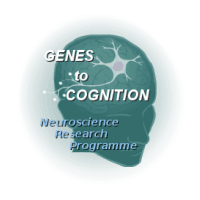G2C::Press Releases
Genetic and cognitive studies in mice and humans paves way for understanding brain disease and evolution of behaviour
In two papers published together in Nature Neuroscience, the Genes to Cognition Programme based at Edinburgh University led by Professor Seth Grant discovered the key role that genome duplication and gene diversification events, occurring around half a billion years ago, played in the evolution of higher cognitive functions and complex behaviours in humans and other vertebrates.
The researchers also showed that humans and mice carrying the same gene mutation show similar cognitive impairments when they were tested using computerized touchscreens. This is important for medicine since it opens the possibility of testing disease causing mutations in humans with computerized tests. It also indicates that the role of some genes in complex learning, cognitive flexibility and attention has been highly conserved over 100 million years.
A large number of brain diseases result from mutations in those genes that arose from the genome duplication events, linking the genomic origins of complex behaviour to diseases involving behaviour.
This research builds on earlier work from the Genes to Cognition Programme that identified a higher complexity in the number of synapse proteins of vertebrates.
Future research will exploit the combination of genetic and cognitive testing in finding causes and treatments for a wide range of brain diseases.
The Genes to Cognition collaborators involved in this study were from the Universities of Edinburgh, Cambridge, Aberdeen and Nottingham, Synome Ltd in the UK and the University of California (USA) and the Max Planck Institute (Germany).
Original articles at Nature Neuroscience
- Synaptic scaffold evolution generated components of vertebrate cognitive complexity
- Evolution of GluN2A/B cytoplasmic domains diversified vertebrate synaptic plasticity and behavior
